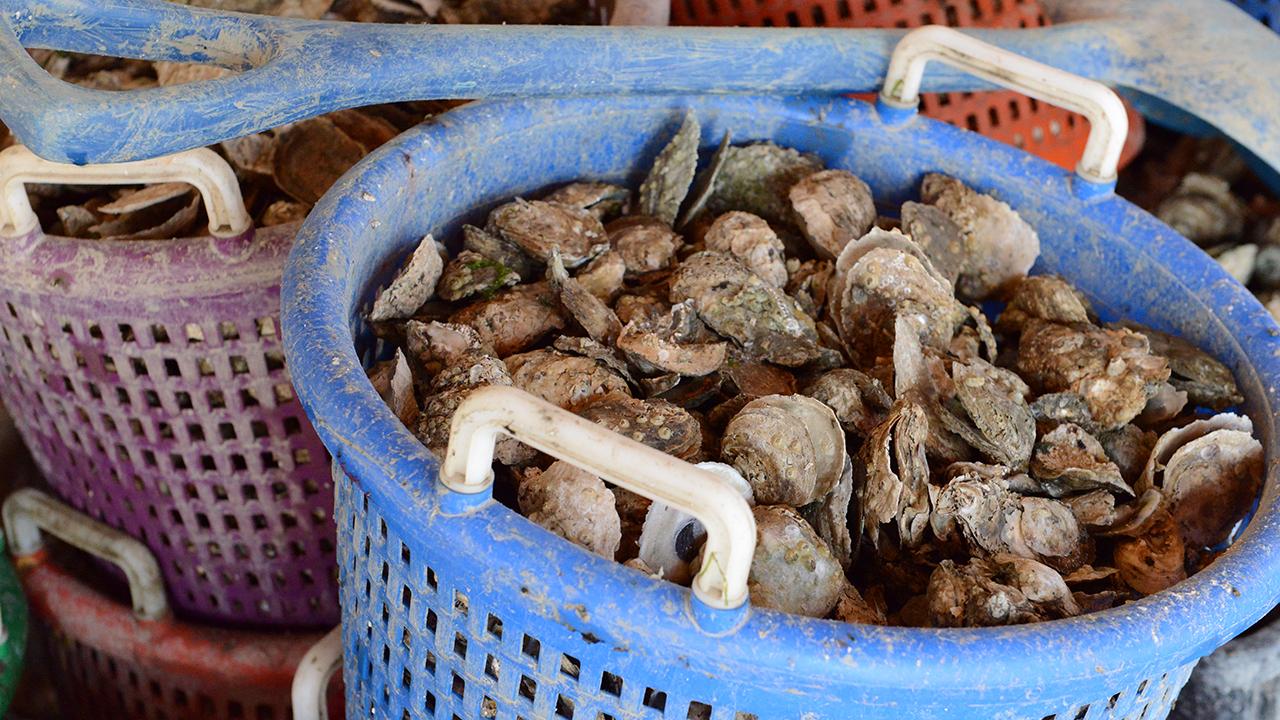World’s their oyster as cousins revive Chesapeake beds: Strange Inheritance
When cousins Ryan and Travis Croxton came into 200 acres of Chesapeake Bay oyster beds once farmed by their great-grandfather, they also inherited a warning passed down through the family over the years:
This is a dead business – don’t even think about it.
The Croxton cousins ignored that advice. They tell their story in the latest episode of “Strange Inheritance with Jamie Colby.” It premieres on FOX Business Network on Monday March 19 at 9:30 p.m. Eastern.
In 1899 James Croxton leased from the Commonwealth of Virginia two acres of oyster beds at the mouth of the Rappahannock River. When he died in 1961, he bequeathed a sweet business to his son Bill – Ryan’s and Travis’ grandfather.
The Rappahannock Oyster Co. kept growing – to 200 acres of leases yielding 7,000 bushels a year. Campbell Soup was one of its customers.
By the 1980s, however, pollution and overfishing drastically reduced the Chesapeake harvest. Unable to make a profit, Bill Croxton dissolved the business – but kept paying $200 every 10 years to keep his name on the leases. When he died in 1991, he left them to his sons with the admonition that farming them was throwing money down the drain.
Ryan and Travis were given an option to renew in 2001.
“Ryan was at my house drinking beer, and I was, like, ‘Hey, we should do this!’ ” Travis recalls. “It wasn’t a lot of money, and we’ve had this in the family since 1899. How can you let that go?”
It wasn’t a lot of money. That is, until the cousins – who worked in banking and knew nothing about raising oysters – decided to take the plunge and try to revive the old Rappahannock Oyster Co.
“Obviously a couple of drinks make anything sound good,” Ryan tells Colby in the program.
The Croxtons opted for a new, “off-bottom” technique of oyster farming.
To purchase the equipment and supplies, “we had to basically max out our credit cards,” Travis recalls. “We looked at our debt for the first time, and it’s like, whoa, $350,000.”
But the off-bottom technique worked, and business took off.
Today, they’re farming 2,000 acres and harvesting 21,000 bushels a year. In addition to selling to restaurants around the country, they’ve opened a series of upscale oyster bars in Washington, D.C., Charleston, South Carolina, and Los Angeles.
Their success seems to surprise Ryan.
“I don’t think we got into it with this great business plan,” he says. “It really was more of a passion project. A way to reconnect with our heritage.”
Like opening up an oyster, and finding a pearl.




















